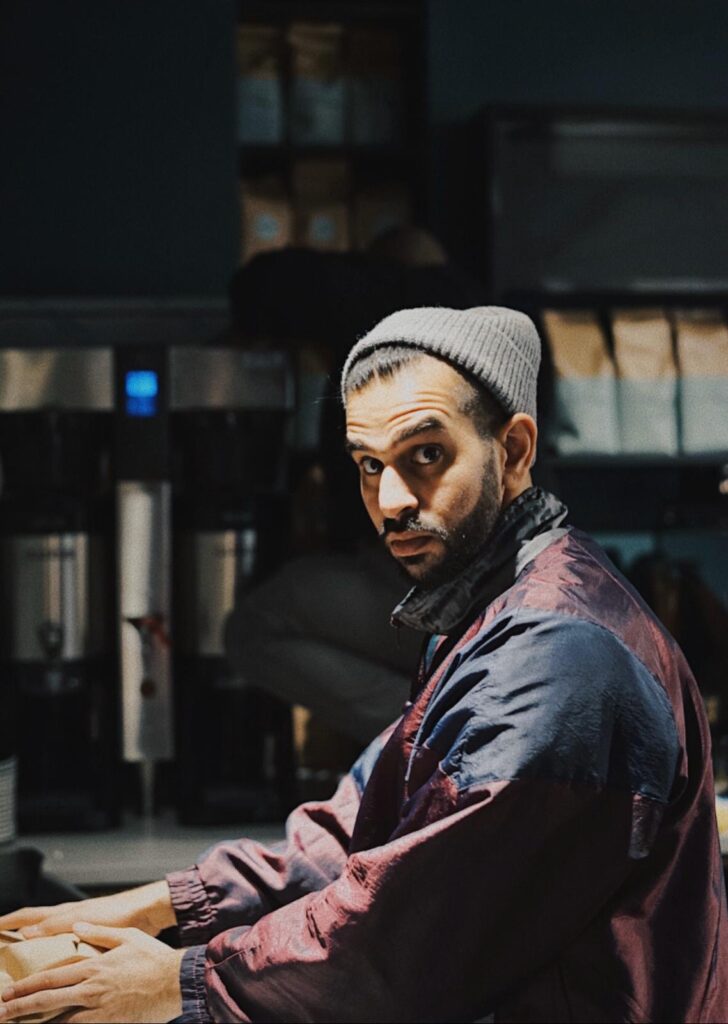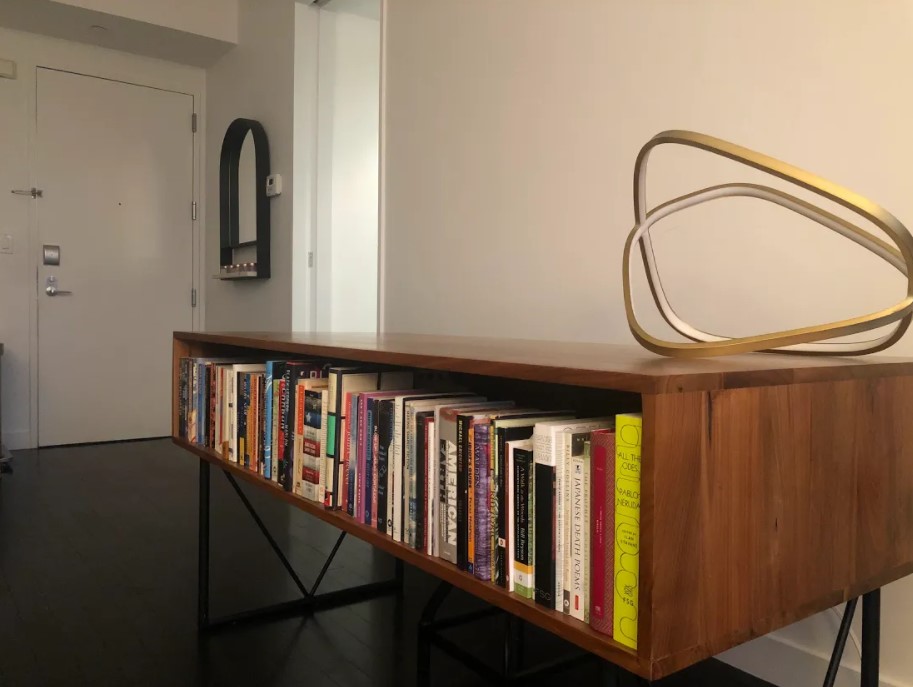
S.S. Mandani runs a coffee shop and writes in New York City. He studied fiction at the University of Florida and holds an MFA in creative writing from The New School. His stories appear in Shenandoah, Maudlin House, Hobart (After Dark), Lost Balloon, X-R-A-Y, and elsewhere. In 2021, he was nominated for Best of the Net, Best Microfiction, and Best Small Fictions. His novel-in-progress explores a dysfunctional family of jinn. He writes about drinks and culture for “Liquid Carriage” at No Contact and radios @SuhailMandani.
Click here to read S.S.’s flash story “The Motivations of a Hibachi Chef” from our winter 2022 Joy issue!
Does your writing ever surprise you? In what ways?
When I’m locked in a flow state and conceive of a conceit as if materializing from thin air. Secondly, months later when a story (if a story) has been published, and I read a random sample capturing lightning in a bottle, and think, was this me? Who is this writer?
What part of the writing process brings you the most joy?
Being bewitched by the process.
How do you preserve that joy in your writing in the face of rejections or setbacks?
Forward movement. Failure enriches the process.
Do you have a specific revision process? How long do you let something you’re working on rest before you begin revising? Do you share it with anyone, and how do you know when it’s ready for submission?
Each story gets its own treatment. I find it helpful to take a step back for at least twenty-four hours, most times a week, for some stories a year. Being an objective critic of my own work has become the magic to revision. I used to share all work with trusted first readers because I couldn’t evaluate it properly. After spending a year writing a story a week, I found I had acquired a keener sense of what is good and what can go.
Writing is most often a labor of love, where gratification is self-defined and can sometimes be delayed or subdued. What motivates you to keep coming back to the page?
New stories that must come out of me.
Do you think a writer’s nerves or anxieties about their work can positively affect it?
Nerves seem to be a natural part of the creative process. I’m not sure if they are positive or negative, just that they are.
Rest is arguably as important as getting the words down, especially when we can give our brains a true rest and let them wander as they wish. What do you do to embrace this time and honor it as a space for regeneration, imagination, and possibility?
Wandering is a privilege, and I try not to take it for granted. It is nourishing for creativity. In times of rest, travel, and relaxation, my imagination revs up and runs wild. I just try and enjoy it all.
If you have a regular writing practice, what do you do to protect your writing time?
When inspiration strikes, I jot down a story idea. Usually my notes app, but if my phone is dead, a bar napkin works. Or notebooks. Love a good notebook (Goods for the Study, MUJI, etc.). Then I let the story dust coalesce into a thoughtful mess throughout the week. Finally, it shoots out of me in one or more writing sessions. I tend to work best when no one else is awake. That means waking up early or, let’s be real, staying up late. During the day, my writing practice can be slapdash. Life often interjects. And that’s okay. Other things and people, work and love, are just as important. Otherwise, what is it all for?
Where do you write? Do you have any rituals you follow before turning to the page?

Sofa. Kitchen island. Coffee table. Coffee shops. On the go. Mid-commute. On the sidewalk. Cafes, bars, and eateries alike. I used to do all these little things before sitting down to write and if I didn’t have these set of things, it became a bottleneck. I was less productive. Then I had a writer friend tell me the work is the real ritual. It stuck. I do enjoy having a cup of coffee (black), tea, or other libations, depending on the time of day and mood. Recently, though, I try to get the words down without any attachments. I take it back: a good muffin always helps. And, you know what? I do have a lovely writing desk that’s now become more of a bookshelf. I used to write religiously every day on it, walled in by books, papers flung in all directions. A mad scientist at work. And now it’s a clean surface in our living room. Writing habits change.
What conversations do you hope your writing (either a specific piece, or your full body of work) might spark for readers?
A sense of wonder about the mystery of existing, finding peace, enjoying the little things, the everyday magic in the mundane. My hope is also to subvert these expectations and spellbind readers with off-kilter tales and fresh takes. Oh, is that all, huh? Yes. But really, I’m just happy when someone goes out of their way to say they liked a story.
Who is one writer you wish more people would read?
Clarice Lispector. Julio Cortázar. Richard Brautigan. Tobias Wolff. Italo Calvino. Diane Williams. Robert Lopez. Rumaan Alam. Bud Smith.
What’s the best bit of craft advice you’ve been given, or some of your own that you’d like to share? Are there any craft books you’d recommend?
I collect quotes for rainy days. I hope it’s okay to share a few here:
- “Narrative is potential. Feeding that sense of play is what makes writing joyful.”
—Carmen Maria Machado - “I want my readers to laugh sometimes . . . I like to make people laugh every ten pages.”
—Haruki Murakami - “Great dialogue is two cannons firing past each other.” —George Saunders
- “The work is finding something that is worth your attention.” —Deborah Eisenberg
- “When writing about things or people you don’t know that well, it starts with a respectful curiosity.” —Jamel Brinkley
- “You want to end with lightness, with the page floating up.” —Durga Chew-Bose
- “The worst thing you can do as a writer, is to flinch. The reader will not accept this. You’ve lost your nerve. You have to go there.” —Sigrid Nunez
I’m not always great at following it, but I think of this tough love by Sarah Manguso quite a bit.
What words of kindness, support, or advice can you offer to writers who are just starting out or seeking their stride?
Read about what works for others. Do what works for you. A proclivity for doing the work is the talent. Find joy in the process. It is the best part.
Any good news you’d like to share?
I will be a member of the Social Staff for the Bread Loaf Writer’s Conference this summer! I also have new stories with Hobart (After Dark), the Lit Pub, and 3:AM (forthcoming), and I enjoy connecting with new writer friends on Twitter @SuhailMandani.
